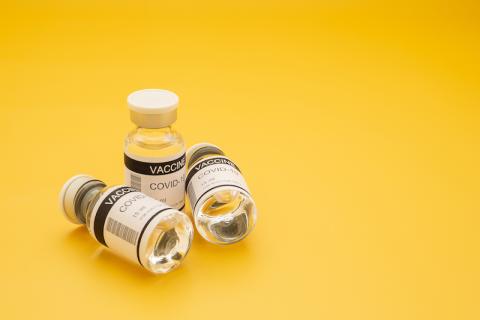
A team of researchers from the universities of Bristol, Leicester, Glasgow, UCL and King’s College London, have confirmed that the COVID-19 booster programme resulted in a substantial uplift in the UK population’s immunity.
The researchers analysed blood samples from 9,361 participants – 4,739 from King’s College London’s TwinsUK study and 4,622 from Bristol University’s Children of the 90s study (also known as the Avon Longitudinal Study of Parents and Children). They measured levels of antibodies generated by vaccination, and set out to determine if certain groups were less able to mount an immune response.
The results, published today in the scientific journal eLife, showed substantial increases in antibodies with each round of vaccination. Levels of antibodies were around 10 times higher in the first weeks after a third vaccine, compared to six months after a second dose.
The researchers found that some people had consistently lower levels of antibodies after vaccination, and this was particularly true of people advised to shield in the first year of the pandemic. However, even these individuals mounted a strong immune response to the booster vaccine.
The researchers also found that any differences in antibody levels according to the different vaccine types evened out after a third dose.
In line with previous research, people who had previously been infected with COVID-19 were more likely to have higher levels of antibodies, compared to those who had not been infected.
The findings add to an increasing body of research that supports the case for third (and in some cases a fourth) COVID-19 vaccination to boost antibodies and protect against COVID-19.
Dr Nathan Cheetham from TwinsUK, first author on the paper, said:
Our results also showed that some people are more likely to have a weaker response to vaccination than others, which we hope will be useful for policy-makers when considering any future COVID-19 vaccinations. In particular, we saw in participants from both TwinsUK and Children of the 90s cohorts that the “Shielded Patient List” criteria were an effective means to identify those with lower response to vaccination, despite the guidance to shield no longer being in place.
Professor Claire Steves, joint senior author from King’s College London, said:
We were particularly pleased to see that individuals at higher risk of severe infection still responded well to the booster vaccination. This is further evidence that coming forward for a booster vaccination is a good idea as COVID is still very much around.
Professor Nic Timpson, joint senior author from the University of Bristol, said:
The response from participants to the challenge of collecting immunological data throughout the pandemic was fantastic. This has allowed insight into SARS-CoV-2 response, correlates of immune system patterns and of course the impact of vaccination. It is also the case that this work opens up the prospects for cohorts as important resources for the assessment and monitoring of infections disease.
The study was undertaken as part of the National Core Study for Longitudinal Health and Wellbeing.
